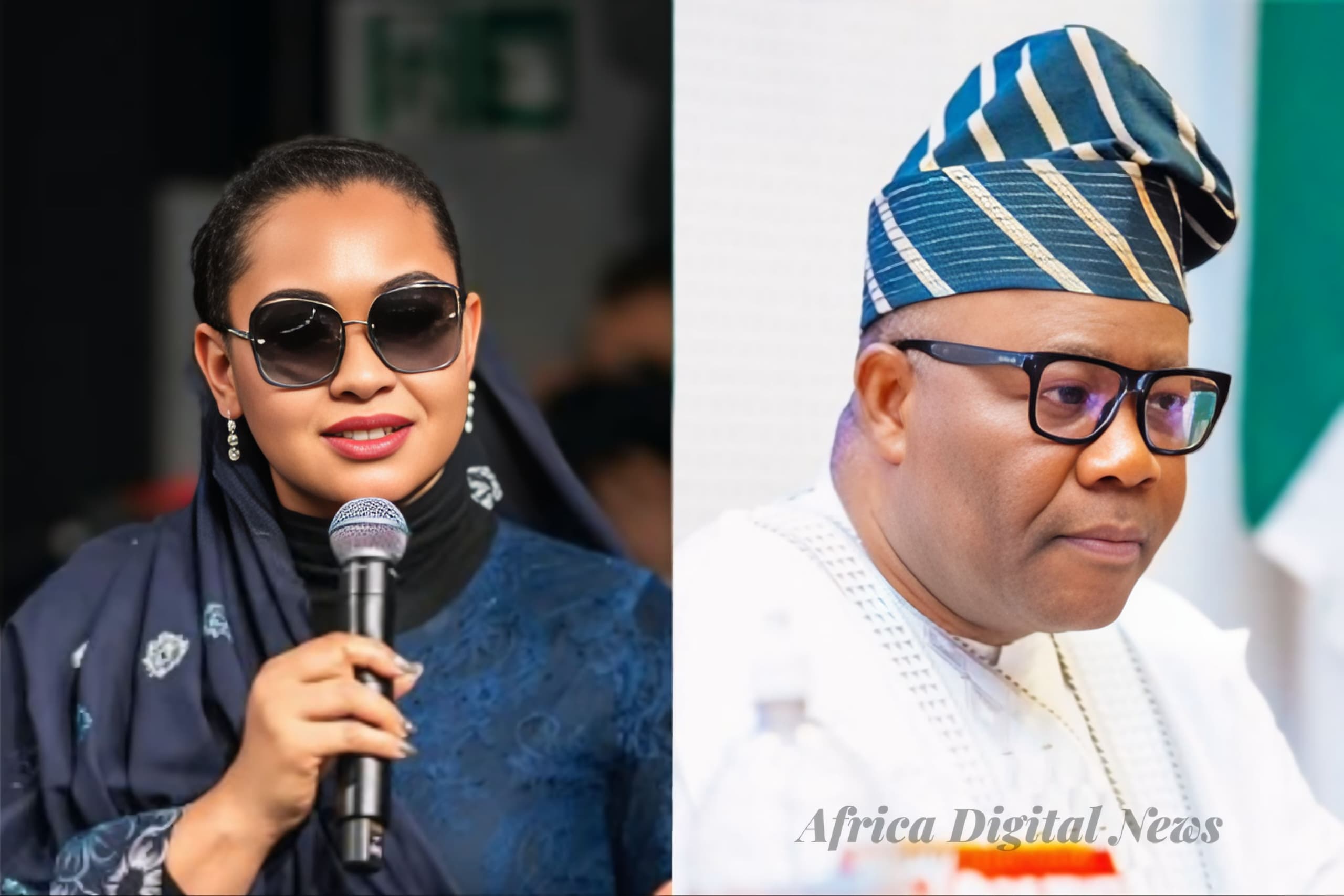In a world where validation is often measured by Western accolades, it is time for African music artistes to reclaim their narrative. Our rich musical heritage is not only a testament to centuries of cultural evolution but also a beacon of innovation that stands tall on its own. No longer should the measure of success be determined by the Grammy Awards or any external standard that fails to capture the soul of our sound. Instead, we must nurture our creative integrity, celebrate our authentic voices, and let our rhythms speak for themselves.
A New Dawn for African Music
The global music industry is undergoing a seismic shift, and at the heart of this transformation lies the unprecedented rise of African music. For decades, Western music markets dictated global music standards, often marginalizing indigenous African sounds. However, recent years have witnessed an explosion of African music on the global stage, driven by digital streaming, cultural reassertion, and the economic potential of a continent rich in creative talent.
According to the International Federation of the Phonographic Industry (IFPI), digital streaming revenues in Africa grew by more than 30% in 2022, surpassing growth rates in many established Western markets (IFPI, 2023). This rapid expansion has been fueled by a combination of technological advancements, increased smartphone penetration, and the proliferation of homegrown music platforms such as Boomplay and Audiomack, which are providing African artists with direct access to a global audience (Arthur et al., 2023).
The Rich Legacy of African Music
African music is as ancient as the continent itself, woven into the fabric of daily life through songs, dances, and ceremonies that have transcended generations. Our music is not just entertainment; it is a living archive of our collective experiences, struggles, and triumphs. From the intricate polyrhythms of West African drumming to the soul-stirring melodies of Southern African vocal traditions, our musical legacy is a profound expression of identity and resilience.
Historically, our music served as a means of communication, education, and spiritual connection long before modern recording technologies existed. The griots of West Africa, for example, were custodians of history and oral tradition, their performances echoing the joys and sorrows of entire communities. Today, this deep well of cultural wealth is more accessible than ever, thanks to digital media and global platforms that allow our stories to be heard far and wide.
Yet, despite the undeniable power of our musical traditions, there has been a lingering notion that the pinnacle of success is found in Western approval. This mindset not only undervalues our heritage but also creates an unhealthy dependency on external validation. By reclaiming the narrative and celebrating our own benchmarks of excellence, we can ensure that our music remains true to its origins while continuing to innovate and inspire.
Breaking the Chains of Western Validation
For decades, international awards such as the Grammys and Billboard Music Awards defined global musical excellence. Yet, a closer look at their history reveals a deep-seated bias. Between 2010 and 2020, fewer than 10% of Grammy nominations recognized African artistes, despite the continent’s immense contributions to global music culture (Cimardi, 2022). The implication is clear: African artistes were long undervalued, their music often classified under ambiguous “world music” categories rather than being recognized as mainstream artistry.
In response, leading African artistes are reclaiming their narrative by focusing on authenticity rather than external validation. Nigerian stars such as Burna Boy and Wizkid have demonstrated that African music can dominate international charts without the need for Western approval. Their streaming numbers run into billions, with Burna Boy’s African Giant and Twice as Tall albums topping international charts and winning critical acclaim, not because they conformed to Western tastes, but because they stayed true to African rhythms, storytelling, and cultural depth (Peukert & Röschenthaler, 2023).
This shift is also evident in music collaborations. While past African artists sought validation by featuring Western artists, the dynamic is now reversing, with global superstars increasingly seeking collaborations with African musicians. Beyoncé’s The Lion King: The Gift album featured predominantly African artists, showcasing the continent’s rising influence in shaping global pop culture (Yende, 2023).
Economic Power: African Music as an Industry, Not Just an Art Form
Beyond the cultural impact, African music is becoming a formidable economic force. In Nigeria, the music industry contributed approximately $7 billion to the economy in 2022, a number projected to double by 2030 due to digital revenue streams and international market expansion (Abdulsalam & Tajudeen, 2024). The rise of independent artists monetizing their craft through direct streaming, concert tours, and merchandise has transformed the industry into a sustainable economic powerhouse.
More significantly, African governments are beginning to recognize the financial power of music. Countries such as Ghana and South Africa have introduced initiatives to formalize and support the creative industry, offering grants and infrastructure to support emerging talent (Masasabi & Kususienya, 2022). Such policies not only empower local artists but also position African music as an integral component of national GDP, attracting investors keen to tap into the rapidly growing industry.
Streaming and Digitalization: Breaking Geographic Barriers
The digital revolution has further propelled African music onto the world stage. In the past, limited access to Western record labels meant African artists struggled to distribute their music globally. However, with the rise of streaming platforms, geographical barriers are disappearing. A study on the influence of digital music entrepreneurs found that streaming services now account for more than 70% of African music revenue, with platforms such as Spotify, Apple Music, and YouTube generating billions of streams for African songs (Arthur et al., 2023).
Moreover, global streaming platforms are beginning to localize their operations, recognizing Africa’s massive untapped market. Spotify, for instance, launched a dedicated African editorial team, curating playlists tailored for diverse African audiences while simultaneously pushing African music to international listeners (Peukert & Röschenthaler, 2023). These developments ensure that African artists no longer need to rely on Western gatekeepers to achieve global success.
Read also: African Music Genres Deserve To Be Celebrated By The Grammys
The Cultural Renaissance: Owning the Narrative
Perhaps the most significant aspect of this transformation is the cultural renaissance taking place within the African music scene. More artistes are using their music as a medium of self-assertion, embedding messages of resistance, heritage, and identity. Genres such as Afrobeats, Amapiano, and Bongo Flava have not only gained international recognition but have also maintained their cultural authenticity, resisting the pressures of Western homogenization (Cimardi, 2022).
The fusion of traditional African instruments with contemporary production techniques has led to a uniquely African sound that is fresh, innovative, and globally appealing. For instance, Kenya’s traditional Adeudeu instrument, once considered archaic, has found new life in contemporary African music, reflecting a broader movement toward cultural reappropriation (Masasabi & Kususienya, 2022).
Moreover, African music is increasingly featured in global media. Hollywood blockbusters, Netflix original series, and even FIFA video games have incorporated African songs into their soundtracks, bringing the continent’s rhythms to millions worldwide (Matveevsky, 2022).
The Road Ahead: A Call for Self-Determination in African Music
Despite these gains, challenges remain. Issues such as copyright infringement, lack of structured royalties, and unequal revenue distribution continue to plague the African music industry (Abdulsalam & Tajudeen, 2024). While streaming has democratized access, it has also led to revenue fragmentation, where artists earn significantly less per stream compared to Western counterparts due to disparities in ad revenue and premium subscription rates.
However, the solution lies not in seeking Western validation but in strengthening local institutions. African countries must prioritize building efficient copyright laws, fostering artist unions, and developing homegrown music distribution platforms that retain revenue within the continent (Yende, 2023).
The allure of prestigious awards like the Grammys is understandable. They are seen as symbols of success and international recognition. However, this pursuit often comes at a steep price. In the quest for global appeal, many African artistes feel compelled to dilute their sound, conform to commercial trends, or adopt Western stylistic elements that may not resonate with their authentic identity. This is the Western validation trap—a cycle where the pressure to please distant gatekeepers leads to compromises that can undermine the very essence of African musical expression.
When we measure our success by external standards that were never designed with our cultural context in mind, we risk losing sight of what makes our music so uniquely powerful. The Grammy Awards and similar accolades are rooted in a history that has often marginalized non-Western traditions. Relying on these symbols of validation can inadvertently suggest that our music is only valuable if it meets foreign criteria, rather than being celebrated on its own merits.
By shifting our focus inward and valuing the rich narratives embedded in our sound, we can break free from this cycle. The true measure of success should be the impact of our music on our communities, the authenticity of our expression, and our ability to inspire change. In doing so, we not only honor our past but also pave the way for a future where African music stands proudly on its own terms.
Conclusion: A New Era of African Musical Independence
The numbers, the culture, and the industry trends all point to one truth—African music is not only thriving but also redefining global musical standards. Gone are the days when success was measured by Western accolades. The new benchmark lies in authenticity,
With continued investment in digital infrastructure, policy reforms to protect creative rights, and an unrelenting focus on cultural authenticity, African music stands at the precipice of a golden age—one defined not by the trophies on Western shelves, but by the impact it has on the lives, economies, and identities of millions.
By redefining success and rejecting the trap of external validation, we not only elevate our own work but also inspire future generations to pursue their creative dreams with unwavering confidence. Our music is already a beacon of inspiration—one that has the power to heal, unite, and transform. Now is the moment to stand tall, own our narrative, and let our bold rhythms speak for themselves.
In the end, the true award lies not in the accolades bestowed by distant institutions, but in the profound connection our music creates with the hearts of those who listen. African artistes, the future is yours. Embrace your heritage, trust in your genius, and let your music be the voice of a continent that refuses to be defined by anyone but itself. The time has come to stop chasing Grammys and start celebrating the unparalleled magic of African sound.
By choosing to prioritize authenticity over external validation, you are not only reclaiming your artistic integrity—you are also shaping a future where African music stands proudly at the center of global culture. Your bold rhythms are a proof to the power of a people who have always known the true value of their heritage. Let your music be a revolution, a declaration that the future of art is as limitless and vibrant as the continent itself.
References
Abdulsalam, T.A. & Tajudeen, R.B. (2024). Does Copyright Imitation Impact Purchase Behaviour in the Entertainment Industry: A PLS-SEM Analysis of Gen Z’s Brand Recognition in Africa? African Journal of Stability and Development.
Arthur, R., Tsede, O.A., Sanda, M., Belfiore, E. & Langevang, T. (2023). Conceptualizing the Influence of Digital Musicpreneurs on the Music Streaming Ecosystem in the Global South. AHFE International.
Cimardi, L. (2022). African Musics in Europe. Ethnomusicology Forum, 31, pp. 326-331.
Masasabi, N.A. & Kususienya, F.W. (2022). The Globalisation of African Musical Instruments: A Case of the Adeudeu of Teso Community in Kenya. African Musicology Online.
Matveevsky, S.S. (2022). African Development Bank: Impact on Economic Growth. Asia and Africa Today.
Peukert, A. & Röschenthaler, U. (2023). Pop Music Production and Regulation Online in Select African Countries and Brazil. Journal of Legal Anthropology.
IFPI (2023). Global Music Report 2023. International Federation of the Phonographic Industry.
Yende, S. (2023). Challenges Experienced by South African Indigenous Musicians: A Critical Discourse Analysis. E-Journal of Humanities, Arts and Social Sciences.










